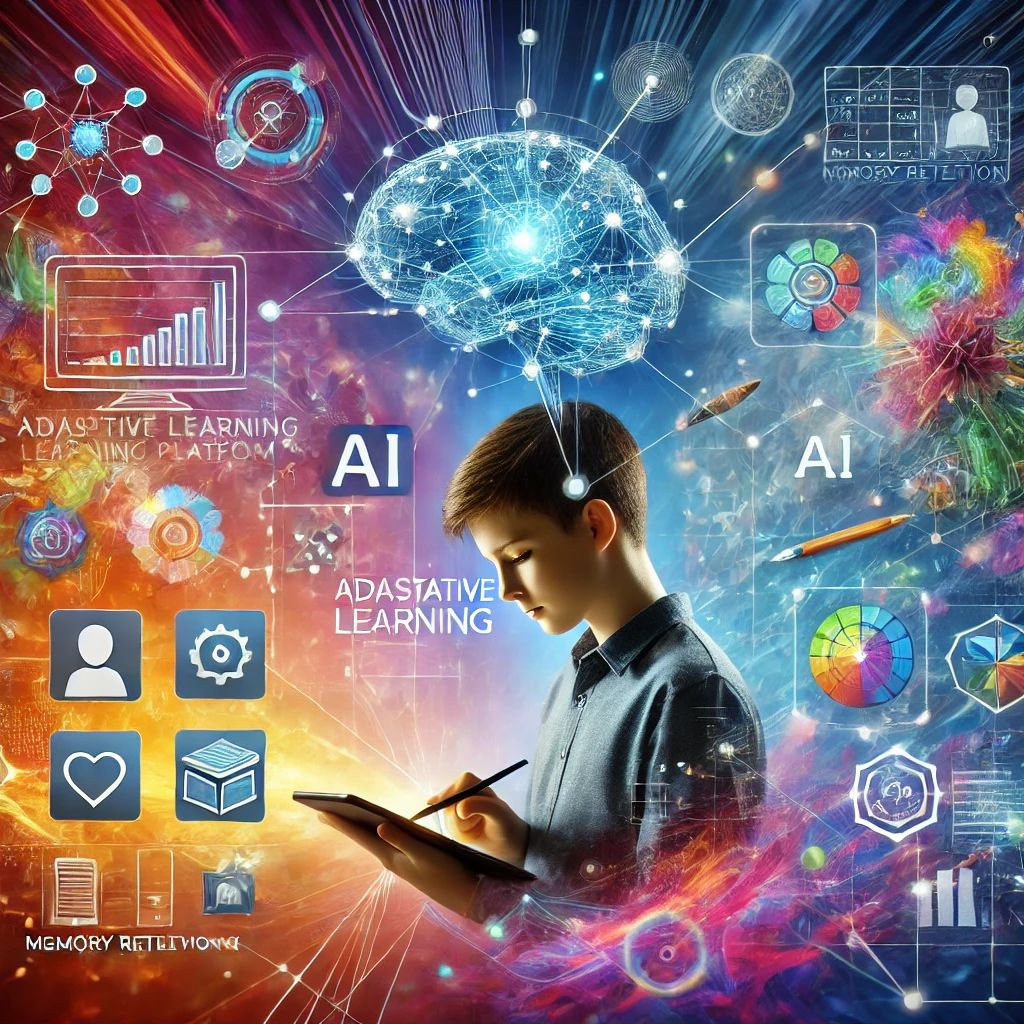1. Improving Memory Retention
Memory retention is crucial for academic success. AI-driven tools can help students remember information more effectively through personalized learning experiences. Here’s how AI can assist:
Adaptive Learning Platforms: AI-powered platforms like Duolingo and Quizlet adapt to a student's learning pace, offering customized quizzes and exercises that target weaker areas. By repeatedly focusing on these areas, students can better retain the information.
Spaced Repetition Systems (SRS): Tools like Anki use AI to implement spaced repetition, a learning technique that presents information at increasing intervals. This method helps embed knowledge into long-term memory, making it easier for students to recall information during exams.
Gamification: AI can turn learning into a game, where students earn rewards for completing tasks or remembering facts. This makes the learning process more engaging, increasing the likelihood of information retention.
2. Enhancing Decision-Making Skills
Decision-making is a vital skill that students need to develop early on. AI can assist in this area by providing data-driven insights and scenarios for students to practice making decisions:
AI-Powered Simulations: Platforms like CogniFit offer decision-making games that simulate real-life scenarios. Students can practice making choices in a controlled environment, learning from the outcomes without real-world consequences.
Data Analytics Tools: AI can analyze vast amounts of data to present students with options based on factual information. For example, AI can help students choose courses or career paths by analyzing their strengths, interests, and market trends.
Feedback Systems: AI tools provide instant feedback on students’ decisions, helping them understand the consequences and learn from mistakes. This reinforces positive decision-making behaviors.
3. Maintaining a Consistent Daily Routine
A well-structured daily routine is essential for balancing study, extracurricular activities, and rest. AI can assist students in creating and sticking to a routine:
AI-Powered Scheduling Apps: Apps like My Study Life and Todoist use AI to help students organize their day. These tools can prioritize tasks, set reminders, and even suggest optimal times for studying based on a student’s performance data.
Habit-Tracking Tools: AI-driven habit-tracking apps like Habitica can motivate students to stick to their routines by turning daily tasks into a game. Completing tasks earns rewards, encouraging consistency.
Personalized Notifications: AI can send personalized notifications to remind students of upcoming deadlines or to take breaks, ensuring that they maintain a healthy balance between study and rest.
Conclusion
AI is revolutionizing the way students learn, offering personalized tools and resources to improve memory retention, decision-making, and daily routine management. By integrating AI into their study habits, students can enhance their skills, leading to better academic performance and overall well-being. As AI continues to evolve, its potential to support students will only grow, making it an invaluable tool in education.
By addressing these key areas, AI not only improves students' academic abilities but also helps them develop essential life skills that will serve them well beyond their school years.

